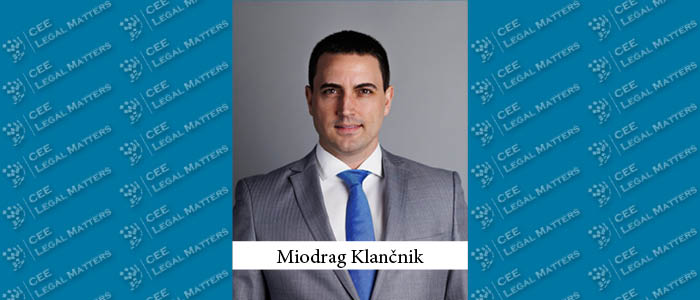Despite their undeniable awareness of importance of intellectual property (IP) for business success, many multinational companies overlook the fact that IP laws vary between countries. This has motivated us to write this article as a memento of IP that can be generated by employees. It explains the general regime related to use of such intellectual property and suggests which legal mechanisms are available to employers in safeguarding their legitimate interests in relation to IP.
Employees may generate the following intellectual creations in the course of their employment:
- inventions (products or processes resolving technical problems in any field of technology: physics, engineering, pharmacy, biotechnology, etc.);
- industrial designs (3D or 2D features of industrially produced products and goods such as electronic devices, cars, furniture, etc.), and
- works of authorship (such as literary works, music, film, paintings, software and databases).
Having in mind IP’s increasing importance for business success, both employers and employees should regulate ownership and mutual rights and responsibilities over IP generated in the course of employment much before its creation.
Ownership and commercial exploitation of industrial property generated by employees
As types of industrial property, inventions and industrial designs are deemed to be generated in the course of employment if:
- created by an employee performing the employment tasks or in accordance with a special act of the employer regulating research and development; or
- created during the employment relation or in the period of 1 year following the termination of employment provided that the invention is related to the employer's business activities or is created with material-technical means, information and other conditions provided by the employer or created as a result of the professional training provided by the employer to the employee.
Ownership over inventions generated in the course of employment is regulated by Patent Law ("Official Gazette of the RoS", nos. 99/2011, 113/2017, 95/2018, 66/2019 and 123/2021), whereas provisions of the mentioned law regulate ownership over industrial designs accordingly. As a general rule, right to patent protection belong to the employer, unless otherwise contractually agreed between the employer and the employee. In return, the employee keeps moral rights related to the invention and right to special compensation, subject to fulfilment of certain legal conditions.
If the employer decided to file patent application and the application turns to be successful, the employee is entitled to special compensation, on top of his salary. Likewise, the employee is entitled to special compensation if the employer decides not to file patent application for reasons involving employer's production confidentiality interest. Under the Patent Law, criteria for determining the amount of compensation, the method and maturity of the compensation are determined under a general act of the employer or employment or other contract between the employer and the employee. In absence thereof, the amount of compensation will be determined by the court depending on the commercial exploitation of the invention/industrial design and contribution of the employee, which is unreasonable to leave to the open judgement of the court.
Ownership and commercial exploitation of works of authorship generated by employees
Mutual rights, duties and responsibilities between employers and employees relating to works of authorship generated in the course of employment are regulated under the Law on Copyright and Related Rights ("Official Gazette of the RoS", nos. 104/2009, 99/2011, 119/2012, 29/2016 and 66/2019).
As a general rule, if the work of authorship is created by an employee performing his employment tasks, the employer is entitled to publish and commercially exploit such work within his business activity for a period of 5 years from the date of completion of the work, unless envisaged otherwise under the employer’s general act or the employment contract. The only exception to this rule is related to creation of software, where the commercial exploitation right belong to the employer permanently.
However, commercial exploitation of the work of authorship (software excluded) can be extended in favour of the employer permanently, by virtue of the employer’s general act or the employment contract.
In respect to compensation, the author employee has right to special compensation on top of his salary depending on the effects of the commercial exploitation of the copyright. Again, exceptionally, software author is entitled to the mentioned special compensation only if such right is contractually granted by the employer.
Available IP safeguarding legal mechanisms
All the above mentioned suggests that regulations leave substantial room for more detailed contractual regulation of mutual rights and responsibilities over IP generated in the course of employment. Collaboration with employees may lead to new and valuable intellectual creations, but when it does the employer needs to be in a position to commercially benefit from it. The bigger chance of highly valuable innovation, the more robust contractual regulation of mutual rights, duties and responsibilities in relation to IP is recommended in order to avoid disputes over the right of commercial exploitation of IP generated in the course of employment and the amount of special compensation for the inventor/author.
Certainly, strong non-disclosure covenants in the employment contract are advisable, especially in case of use of invention without filing patent application. It’s worth mentioning non-compete clause which can prohibit employees from becoming direct or indirect competitors to the employer, during the course of employment, as well as for a period of 2 years after termination of employment. In some instances, breach of the non-compete may be documented much easier than misuse or infringement of the IP.
Finally, once ownership over IP generated by the employee is properly ensured, it is of great importance to protect it either by registration or through effective measures for preserving its confidentiality. Registration of inventions and industrial designs is highly recommended for implementing exclusive commercial exploitation of such IP, as well as for adequate legal protection against the infringers.
By Miodrag Klancnik, Partner, MMD Advokati


